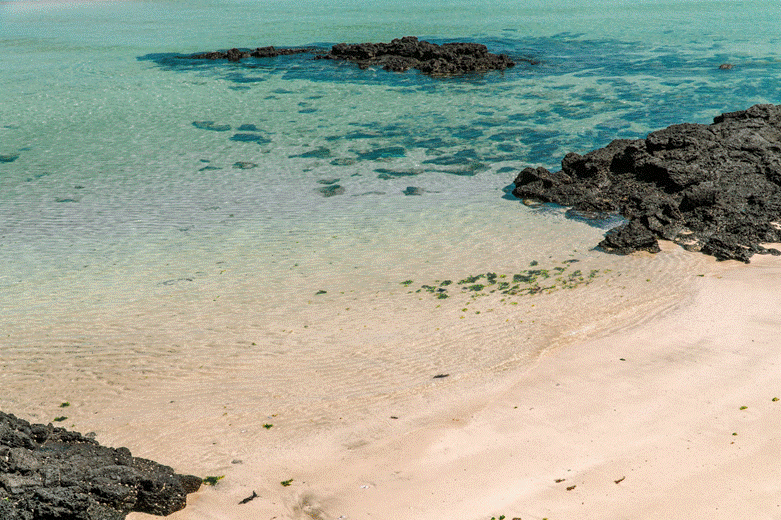For many travelers looking for a unique and beautiful destination, Jeju Island in South Korea is quickly becoming one of the most desirable spots. This volcanic island has been named a UNESCO World Heritage Site due to its breathtaking landscape of majestic mountains, pristine beaches, crystal clear waterfalls, and lush green forests. With its beautiful seaside facing the East China Sea, the island offers a plethora of activities for visitors to enjoy, including sunbathing on beaches, swimming in crystal clear waters, exploring picturesque hiking trails, and even skiing or snowboarding during the winter months.
A Brief History of Jeju Island
Jeju Island holds a significant place in South Korea’s history and culture. Located on the southern coast, this beautiful island boasts pristine beaches, breathtaking landscapes, and a unique cultural heritage. It was once considered a remote and isolated destination, but with time, the island’s natural beauty has attracted more and more visitors each year, cementing its place as a popular tourist hotspot. You can explore your options from the picturesque waterfalls to the towering volcanic cones, there’s no shortage of things to see and do on Jeju Island. Whether you’re seeking relaxation or adventure, the island has something for everyone.
Getting There
Whether you’re a local or a foreign visitor, getting to Jeju Island can be an exciting adventure. The island is well-connected to mainland South Korea via air and sea, with numerous flights and ferries available daily. Once you arrive, you’ll need to pack accordingly for your stay. Since Jeju Island is known for its subtropical climate, it’s best to bring breathable clothing, swimwear, and sunscreen. Don’t forget a pair of comfortable shoes for hiking and exploring, as the island offers many stunning natural landmarks. With adequate preparation and planning, your trip to Jeju Island will be a memorable experience.
Exploring Jeju Island
When it comes to exploring Jeju Island, you’ll be spoilt for choice. One of the most popular sights is the Seongsan Ilchulbong, or “Sunrise Peak”, a volcanic cone that offers incredible views, especially at sunrise. If sandy beaches are more your speed, Hyeopjae Beach draws both locals and tourists alike with its stunning white sand and turquoise water.
For a unique cultural experience, visit the Haenyeo Museum, dedicated to the island’s female divers who harvest seafood without using any breathing equipment – a tradition recognized by UNESCO as an Intangible Cultural Heritage.
Don’t miss out on Manjanggul Cave, a lava tube offering an insight into the island’s volcanic origins, and Hallasan National Park, home to Hallasan, the highest mountain in South Korea. With walking trails that cater to a variety of fitness levels, it’s the perfect spot for nature lovers.
Activities on Jeju Island
Jeju Island is not just about sightseeing; it’s about immersing yourself in a myriad of unique experiences that you won’t find anywhere else. The island’s breathtaking natural scenery serves as the backdrop for various outdoor activities. Start your day with a hike up the Yeongsil Trail, where you’ll be rewarded with an awe-inspiring view of the landscape below. For a fun-filled family adventure, visit the Jeju Horse Park where you can try horseback riding.
Explore the underwater world by snorkeling in the clear waters of Udo Island, appreciating the array of marine biodiversity. For those looking for a local culinary experience, sign up for a traditional cooking class and learn how to make authentic Jeju dishes.
Experience the thrill of wind-surfing at Woljeongri Beach, known for its ideal wind conditions. Don’t forget to visit the O’Sulloc Tea Museum to learn about the traditional Korean tea culture and enjoy the unique experience of picking your tea leaves.

Where to Stay in Jeju Island
For those seeking luxury, the island is home to several high-end resorts and hotels, such as the Lotte Hotel Jeju and Jeju Shinhwa World, offering top-notch amenities and stunning views. For budget-conscious travelers, guesthouses and budget hotels, such as Jeju Bada Guesthouse, provide comfortable accommodations without breaking the bank.
For a more unique experience, consider staying in a traditional Korean hanbok or a cozy homestay where you can immerse yourself in local culture. For those who prefer the great outdoors, there are numerous camping sites and rental villas scattered across the island, perfect for those who want to be closer to nature. No matter where you choose to stay, you’ll find that Jeju Island’s hospitality and charm add to the overall allure of this beautiful destination.
Food Specialties of Jeju Island
Jeju Island is not only a feast for the eyes but also for the palate. The island’s unique culinary culture has been shaped by its volcanic soil, subtropical climate, and the surrounding sea. Seafood, naturally, is a central part of the local diet. Among the must-try dishes is the Haemul-ttukbaegi, a spicy seafood stew brimming with fresh fish, squid, and clams.
Equally celebrated is the Jeju Black Pig, a breed of pig native to the island. The pork is noted for its rich flavor and succulent texture, often enjoyed as Samgyeopsal, a popular Korean barbecue dish. Don’t miss out on trying Jeonbokjuk, a creamy abalone porridge that’s both comforting and nutritious.
In conclusion, Jeju Island is undoubtedly one of South Korea’s most beloved destinations, with its pristine nature and unique culture. From majestic landscapes to delicious cuisine, the island beckons visitors from all over the world to explore its beauty and charm. So don’t miss out on this magical destination – take a trip to Jeju Island and discover why it is such a popular tourist hotspot!
